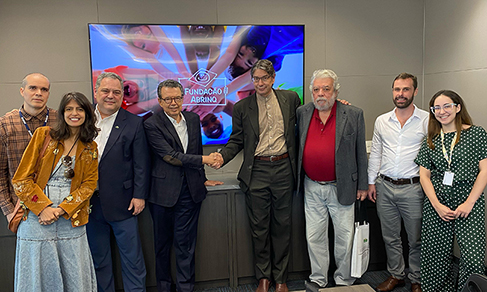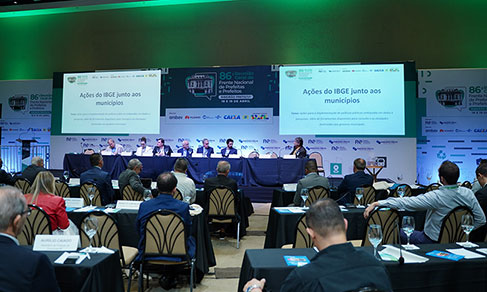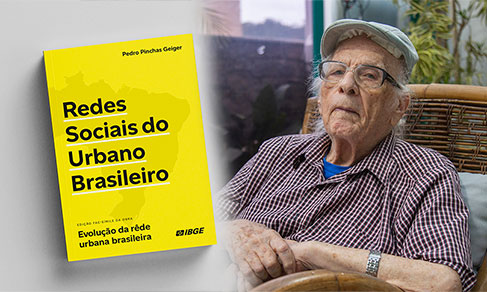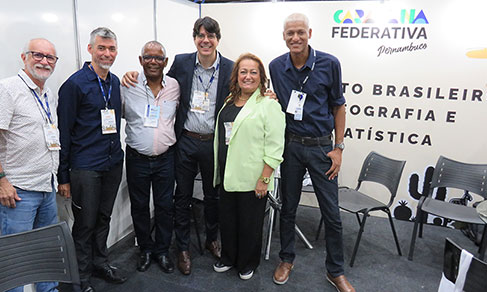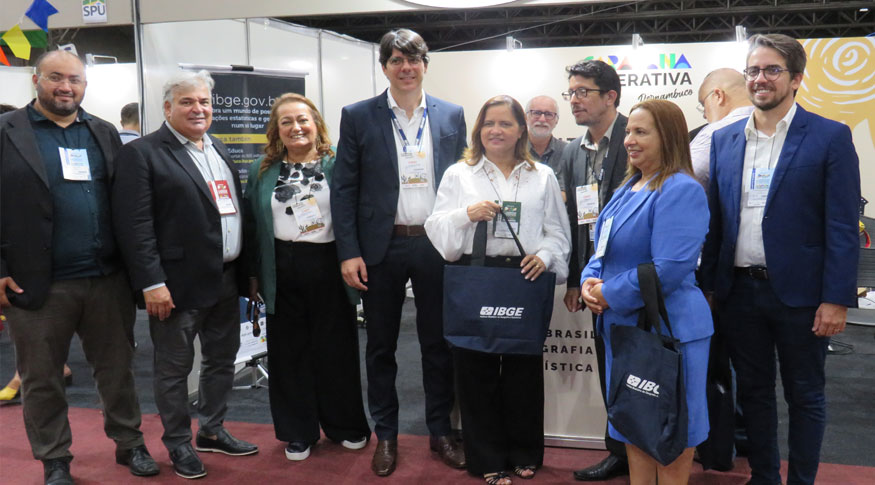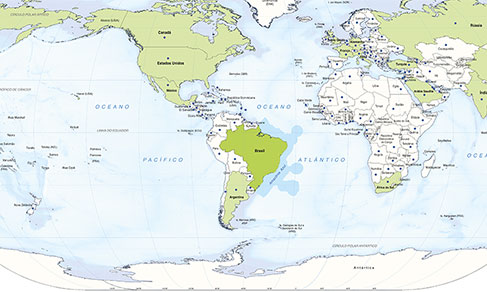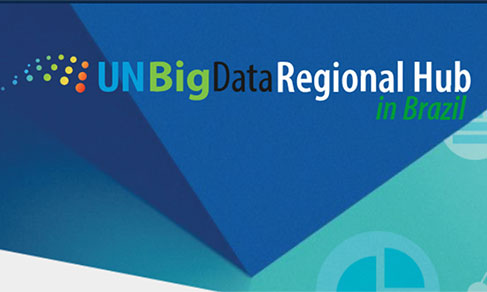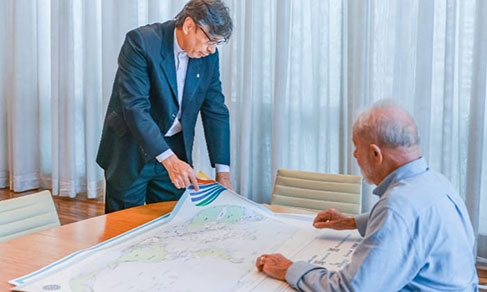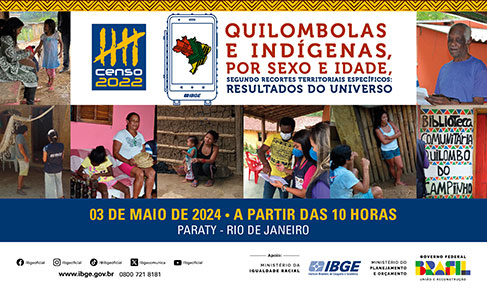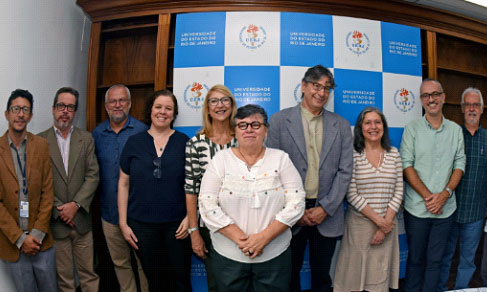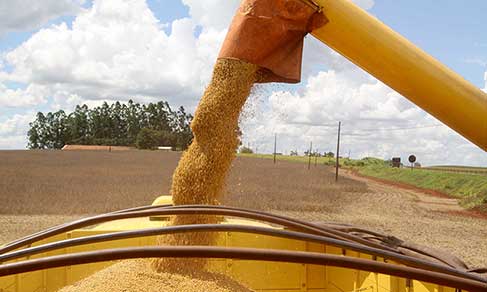Segunda prova piloto
Testing of data collection of 2020 Census begins today in 53 municipalities in Brazil
March 11, 2019 10h00 AM | Last Updated: March 11, 2019 02h42 PM
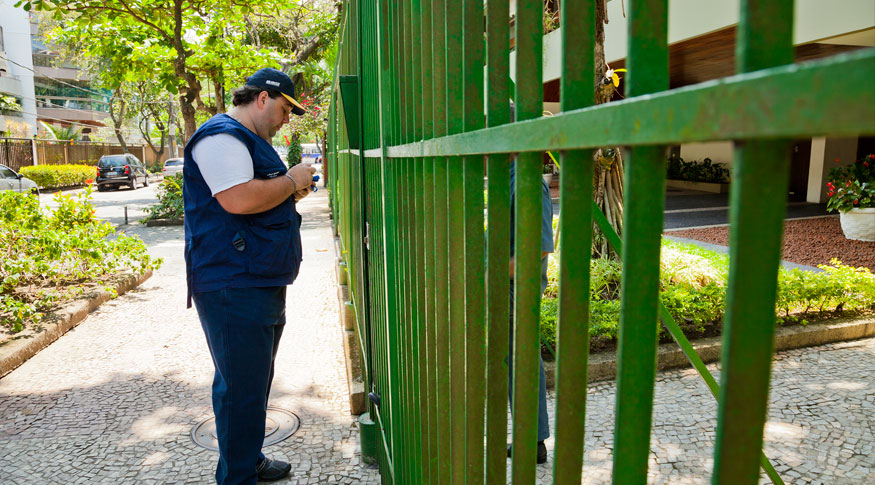
IBGE´s survey agents began the second pilot test of the 2020 Population Census, which will visit about 5 thousand housing units in urban and rural areas of 53 municipalities distributed along 14 states in Brazil. Scheduled up to April 5, this phase will test the workflow of the enumerators and new technologies of data collection.
The selected municipalities have different sizes, in order to assure the diversity of the sample of a Census. During the visits, questionnaires will be applied to assess the response time and the understanding of the questions by the informants, as highlighted by Luciano Tavares, technical manager of the Population Census. "It is important to validate the response in practice, because the expected answers are different in many cases.
| Second pilot test of the 2020 Census - Participating municipalities | |||
|---|---|---|---|
| Parintins (AM) | Brejinho de Nazaré (TO) | Tibau do Sul (RN) | Comodoro (MT) |
| Maués (AM) | Maceió (AL) | João Câmara (RN) | Nossa Senhora do Livramento (MT) |
| Novo Airão (AM) | Joaquim Gomes (AL) | Lagoa Nova (RN) | Maricá (RJ) |
| Barcelos (AM) | Matriz de Camaragibe (AL) | Rio Quente (GO) | Rio de Janeiro (RJ) |
| Santarém (PA) | União dos Palmares (AL) | Rubiataba (GO) | Paraty (RJ) |
| Ipixuna do Pará (PA) | João Pessoa (PB) | Nova América (GO) | Quissamã (RJ) |
| Ananindeua (PA) | Marcação (PB) | Cavalcanti (GO) | Porto Alegre (RS) |
| Belém (PA) | Conde (PB) | Monte Alegre de Goiás (GO) | Lajeado (RS) |
| Boa Vista (RR) | Ibirajuba (PE) | Teresina de Goiás (GO) | Palmares do Sul (RS) |
| Rorainópolis (RR) | Águas Belas (PE) | Campo Grande (MS) | Estrela (RS) |
| São João da Baliza (RR) | Salgueiro (PE) | Aquidauana (MS) | Mostardas (RS) |
| Miranorte (TO) | Elesbão Veloso (PI) | Corumbá (MS) | |
| Tocantínia (TO) | Colônia do Piauí (PI) | Figueirópolis D'Oeste (MT) | |
| Pedro Afonso (TO) | Oeiras (PI) | Jauru (MT) | |
The IBGE will also test other approaches, like the interview through telephone and self filling through the Internet. "Although face-to-face interviews are a priority, they are not always possible. That is why we will test a reliable model of online filling, supported by the call center, through which informants can also answer the questionnaire", explains Tavares.
Another goal of the test is to train the data collection network of the IBGE state units, by assessing the data collection devices and training programs. In this operation, more than 200 professionals among survey agents, supervisors and coordinators will be involved in the visits.
Before the second pilot test, the IBGE carried out the Survey of Surroundings, which raised the urban infrastructure of the municipalities in February, in order to streamline the path and logistics of this operation.
Agents will cover indigenous and quilombola communities
Like the first pilot test carried out in August and September last year, the agents will visit indigenous and quilombola communities, aiming at getting specific information on the logistics of the data collection in these places. For this purpose, villages with characteristics like ethnic-linguistic diversity, presence of a recently contacted ethnicity and high percentage of non-Portuguese speakers in the housing unit were selected.
"The goal is to have a vision of all the mobilization involved in the visit to these places, like the negotiation to enter in these communities, recruitment of guides and interpreters, paths, which often could only be covered by boats and helicopters and may take days", describes Tavares.
International seminar gathers experts in data collection methodology
Aiming at addressing the international agenda of the round of the 2020 Population and Housing Censuses, the IBGE will host an international seminar on April 1-5, in partnership with the United Nations Population Fund - UNFPA, with the participation of representatives from statistical offices of 16 countries.
Representatives of invited countries will participate in the data collection in Rio de Janeiro (RJ) and in quilombola communities in Pernambuco, and will share their impressions on the operation during the seminar.



